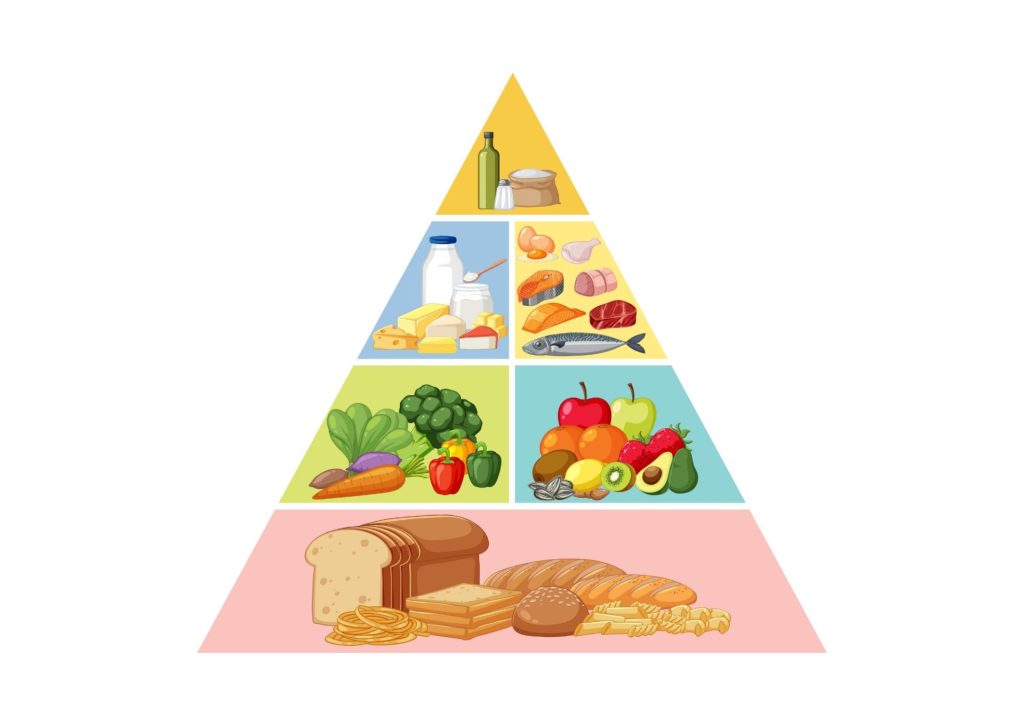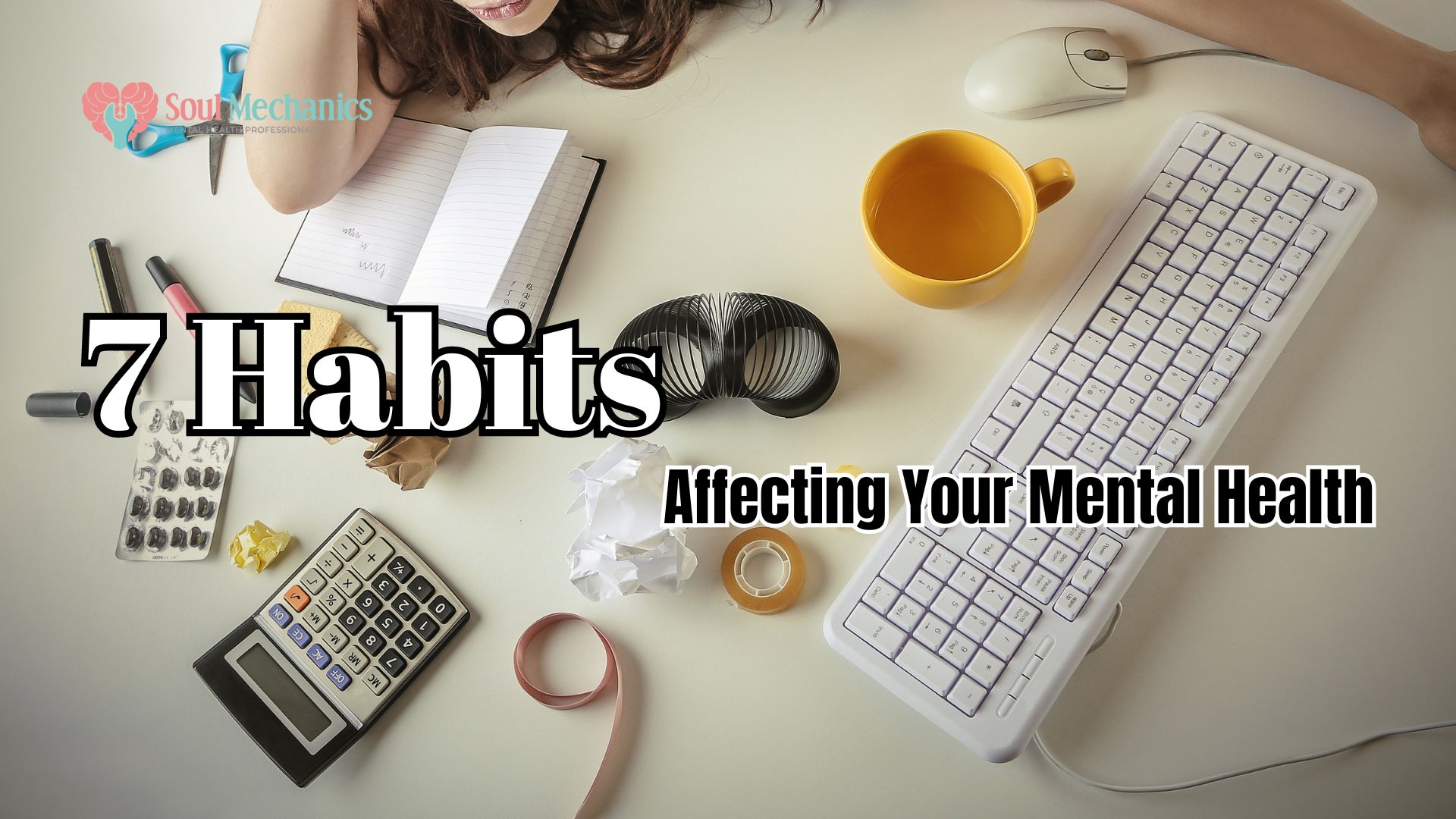Everyday Actions, Big Impact: 7 Habits Affecting Your Mental Health
Everyday Actions, Big Impact: 7 Habits Affecting Your Mental Health

Written By: Kelly Chan Jia Li, Clinical Psychologist (MAHPC(CP)00353)
We often find ourselves caught in the whirlwind of routine without realising how our everyday habits are influencing our mental health. From waking up until closing our eyes at night, our routines can shape our well-being in ways we might not even realize. Hence, unmasking these habitual actions is not just an exercise in awareness but an empowering journey towards understanding and reclaiming control over our psychological well-being. In this article, we will dive into seven daily habits that may be silently affecting our mental health.
Digital Overload: Excessive Screen Time
We all know that staring at screens for hours is not great, but do we grasp how it impacts our mental health? Picture this: you wake up, grab your phone, and dive into a sea of notifications. You are glued to screens throughout the day, toggling between social media, emails, and various apps. While staying connected is important, too much screen time can lead to digital overload.

Undeniably, the digital age has brought convenience and constant connectivity. However, the continuous exposure to digital screens, from smartphones to computers, has been linked to heightened levels of stress, anxiety, and disrupted sleep patterns. The information overload, often overwhelming and anxiety-inducing, can contribute to mental fatigue and a sense of digital overload. Moreover, the blue light emitted by screens disrupts circadian rhythms, disrupting sleep quality and leading to increased irritability.
How to Break This Habit:
To combat this, consider setting specific times for digital detox by creating boundaries for device usage and embracing activities that promote mindfulness (e.g., meditation or spending quality time in nature). Disconnecting from the digital world can significantly improve your mental well-being, even for a few minutes.
Skipping Sleep: Inadequate Sleep Patterns
Sleep is often sacrificed to accommodate work, socialising, or entertainment in our hectic lives. We have all been there – sacrificing sleep to meet deadlines, marathon watching our favourite shows, or just scrolling through our phones late into the night. But did you know that inadequate sleep can be a major buzzkill for your mental health?
Skipping out on the recommended 7-9 hours of sleep can lead to increased stress levels, difficulty concentrating, and heightened emotional reactions. Sleep is a cornerstone of emotional regulation, and when deprived of sufficient rest, the balance of mood will be disrupted. The brain's capacity to process emotions is compromised, leading to heightened reactivity and a diminished ability to cope with life's stressors. Chronic sleep deprivation is also closely linked to elevated stress levels, reduced cognitive function, and an increased vulnerability to anxiety and depression.
Reminder: If you or your loved ones are struggling with sleeping difficulties, please don't hesitate to reach out to us at Soul Mechanics KD or Soul Mechanics Ipoh. Remember, seeking help is not a sign of weakness but strength!
How to Break This Habit:
Establish a consistent sleep schedule by going to bed and waking up at the same time every day. Create a calming bedtime routine, avoid stimulants like caffeine close to bedtime, and make your sleep environment comfortable to promote better rest. Prioritizing the recommended 7-9 hours of sleep per night can significantly enhance mental resilience and overall health. Your brain will thank you for it.
Junk Food Frenzy: Poor Nutrition
Eating poorly does not just impact your body; it messes with your mind, too. Think about your typical daily diet – how often do you opt for fast food, sugary snacks, or processed meals? What we eat has a direct impact on our mental health, and a menu filled with processed goodies can be a one-way ticket to feeling the blues. Consuming a diet rich in processed foods, sugars, and saturated fats has been linked to an increased risk of depression and anxiety. Inadequate nutrition contributes to energy fluctuations, affecting concentration, memory, and overall cognitive performance.
How to Break This Habit:
Focus on incorporating nutritious foods such as fruits, vegetables, lean proteins, and whole grains into your diet. Stay hydrated, limit caffeine and alcohol intake, and consider consulting a nutritionist for personalised guidance on dietary improvements. Remember, small changes in your diet can significantly improve your overall well-being.

Lack of Physical Activity: Being Idle
"Exercise" is a word that often sends shivers down the spine, especially if you are not an active person. Physical activity often takes a backseat in a world where many of us spend hours sitting at desks or in front of screens.

The absence of regular physical activity casts a shadow over our mental well-being, influencing various facets of our psychological health. Without the refreshing boost of endorphins released during exercise, mood regulation becomes a challenge, which can potentially pave the way for increased stress and anxiety. Additionally, the sedentary lifestyle associated with insufficient physical activity can disrupt sleep patterns, contributing to a cycle of fatigue and mental exhaustion.
How to Break This Habit:
You do not need to become a gym enthusiast overnight; even simple activities like walking, gardening, or dancing can make a difference. Find something you enjoy and make it a part of your routine at least three times a week. Exercising releases those feel-good chemicals in your brain, reduces stress, and boosts your mood.
Isolation and Loneliness: Lone Wolf Lifestyle
We live in a world that is more connected than ever, yet so many of us feel like lone wolves. The habit of withdrawing from social interactions, whether due to a busy schedule or personal reasons, can have significant effects on our mental health. The profound sense of loneliness can breed feelings of emptiness, sadness, and heightened stress. Over time, this isolation may contribute to the exacerbation of conditions such as depression and anxiety. The lack of social support diminishes the availability of coping mechanisms, making navigating life's inevitable challenges difficult.
How to Break This Habit:
Make an effort to nurture your social connections. Schedule regular activities with friends or family, even if it is just a virtual coffee chat. Join clubs or groups that share your interests, and remember that meaningful connections play a crucial role in your emotional well-being.
Negative Self-Talk: Inner Self-Critic
Have you ever caught yourself thinking, "I'm not good enough" or "I always mess things up"? The way we speak to ourselves internally, known as self-talk, has a profound impact on mental health. Habitual negative self-talk, characterized by constant self-criticism, doubt, or pessimism, can contribute to feelings of inadequacy, anxiety, and depression. This harmful dialogue shapes one's perception of oneself and the world, influencing decision-making and behaviour. Over time, the cumulative impact of negative self-talk undermines resilience, fostering a sense of hopelessness and diminishing the capacity to cope with life's challenges.
How to Break This Habit:
Cultivate self-awareness to identify negative thought patterns and challenge them. Practice self-compassion by acknowledging and accepting imperfections while focusing on strengths and achievements. Celebrate your accomplishments, no matter how small, and practice gratitude. Over time, this shift in mindset can contribute to a more positive and resilient outlook on life. Sometimes, being your own cheerleader is the best medicine.

Reminder: If you or your loved ones are struggling with mental health conditions, please don't hesitate to reach out to us at Soul Mechanics KD or Soul Mechanics Ipoh. Remember, seeking help is not a sign of weakness but strength!
Being a Superhuman: Overcommitting and Multitasking
Do you find yourself saying yes to every request or juggling multiple tasks simultaneously? Juggling an excessive load of responsibilities not only reduces focus but also leads to a perpetual state of burnout.

The constant juggling between tasks may create an illusion of efficiency, but in reality, it diminishes cognitive performance and increases stress levels. The pressure to meet numerous demands simultaneously can result in mental fatigue, depleting the emotional reserves needed to navigate challenges. Moreover, the constant multitasking undermines the quality of work, leaving a trail of unfinished tasks and unmet expectations, further contributing to a sense of inadequacy.
How to Break This Habit:
Learn to prioritize and set realistic goals. Embrace the power of saying no when necessary and focus on one task at a time to improve concentration and reduce stress. Implementing time management techniques, such as the Pomodoro technique, can turn you into a productivity ninja without sacrificing your sanity.
In a Nutshell
Our daily habits shape the quality of our mental health, and recognising the impact of these habits is the first step toward positive change. From the mundane rituals of the day to the winding down at night, these seemingly insignificant actions profoundly impact our overall well-being. You can take control of your mental well-being by making simple adjustments to your routine, like unplugging from screens, getting enough sleep, nourishing your body with good food, staying active, fostering social connections, promoting positive self-talk, and avoiding the pitfalls of overcommitting. It is time to break free from the unconscious habits that silently affect our mental health and embark on a journey towards greater balance and resilience. Remember, it is the little things that add up to make a big difference in how you feel each day.
If you enjoyed reading this, why not broaden the horizon of knowledge by learning about "Self-Compassion Practices"? You can read the blog here.
For more content related to mental health do follow us on our official Instagram.

